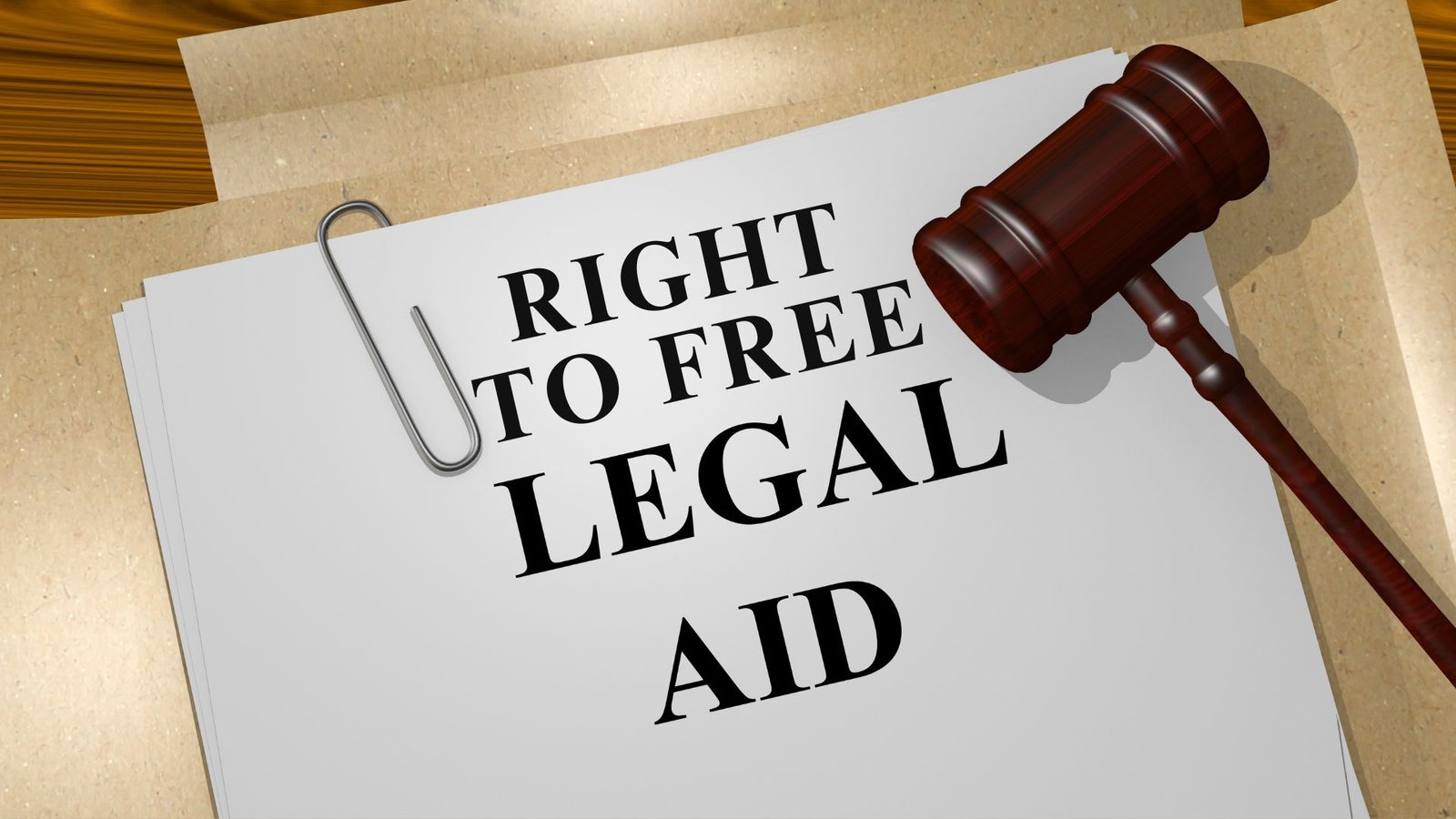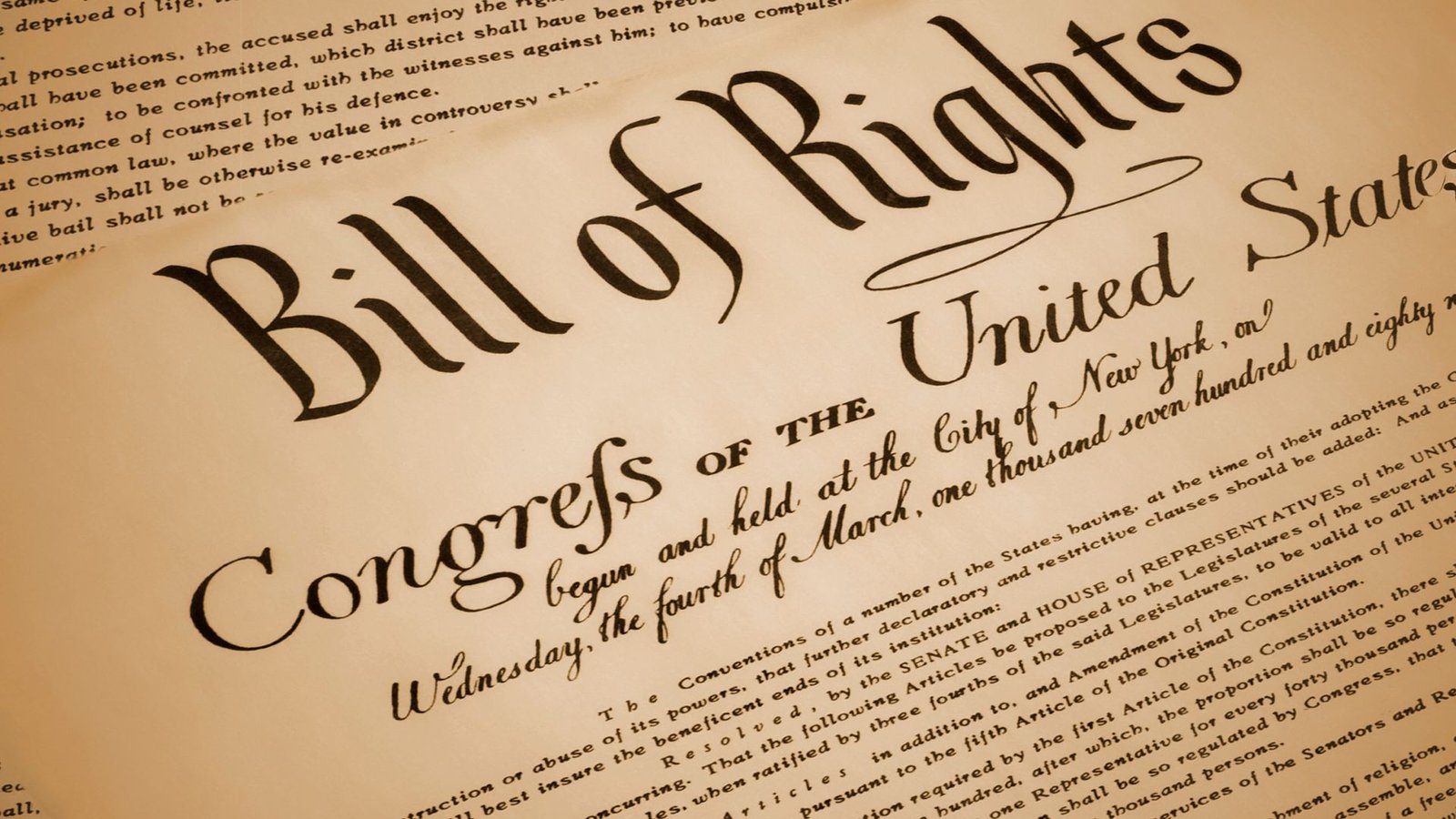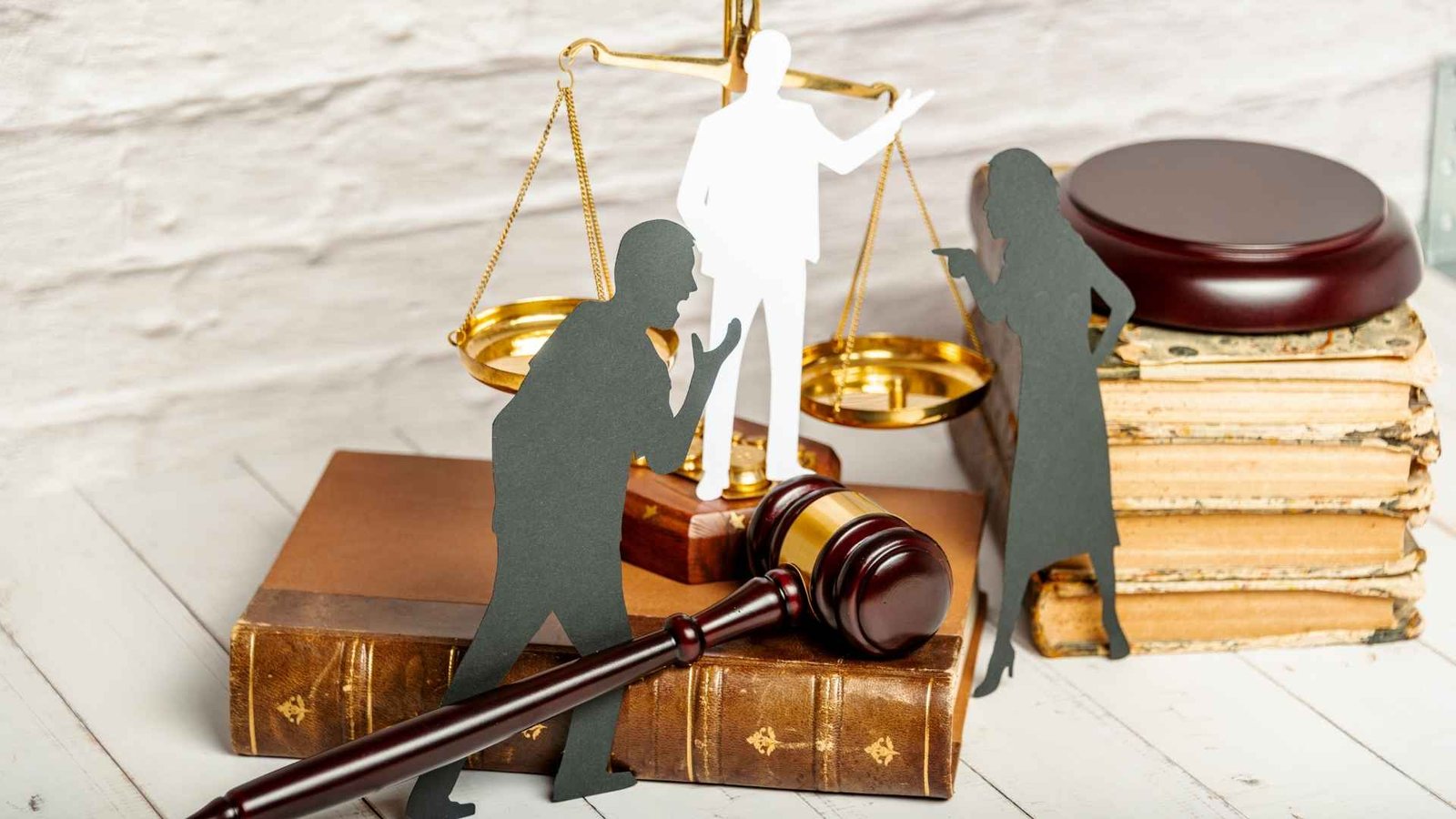On this page you will read detailed information about What Are Natural Rights.
As you consider the concept of natural rights, you are embarking on an exploration of what it means to be human. These inalienable freedoms, endowed by our very nature, form the bedrock of many modern political theories and systems. In the pages ahead, you will analyze the origins, evolution, and modern applications of natural rights theory. Tracing the thread from the Age of Enlightenment through contemporary discourse, you will gain critical insight into the role of natural rights in framing human dignity and self-determination. This foundational knowledge will equip you to participate fully as a citizen in the ongoing discussion of human freedoms in the civic arena.
Define Natural Rights
Natural rights are fundamental rights that all humans possess as a result of being human, independent of any government or law. According to 17th and 18th century philosophers like John Locke, natural rights include:
- Life – All humans have the right to live and protect their own life. This means individuals cannot be deprived of life arbitrarily by others or the government.
- Liberty – All humans have the right to freedom of movement, expression, and self-determination. Individuals should be free from unjust imprisonment or enslavement. Liberty allows people to pursue happiness and purpose on their own terms.
- Property – All humans have the right to own property and keep the fruits of their own labor. Individuals have ownership over their own bodies, as well as any physical or intellectual property they accumulate or inherit during their lives.
Governments are formed by humans to help protect these natural rights. Laws should uphold natural rights, not restrict them. If a law violates natural rights, it is considered unjust. Many historical documents like the U.S. Declaration of Independence and Bill of Rights were written to codify natural rights and restrict governments from infringing upon them.
While there is some debate around the full scope of natural rights, they are considered by many philosophers to be inalienable – they cannot be given or taken away by any government or authority. All humans are entitled to equal natural rights simply due to being human. Upholding natural rights leads to human dignity, justice, and prosperity. Infringing upon them leads to tyranny and human suffering. Understanding natural rights helps establish the proper relationship between individuals and governments. They set the ethical standards that laws and policies should aim for in order to be just.
In summary, natural rights are fundamental human freedoms that are not contingent upon any constitution, legislation or ruler. They provide a moral framework for good governance and human rights. Promoting natural rights leads to human flourishing, while restricting them leads to oppression.
In the previous post, we had shared information about Novation of Contract: All You Need to Know, so read that post also.
The Origin of Natural Rights Theory
The notion of natural rights dates back to ancient times, with philosophers such as Aristotle recognizing certain universal rights. However, the modern theory of natural rights emerged during the 17th and 18th-century Enlightenment era in Europe. Key Enlightenment thinkers, including John Locke and Thomas Jefferson, developed the idea that individuals have essential rights which are not conferred by any government or social contract but are inherent to all human beings based on natural law.
Locke articulated that individuals in a state of nature have certain natural rights to life, liberty, and property. These natural rights are not unlimited but establish a sphere of autonomy and self-determination. When individuals enter into civil society and establish a government, they do so to better ensure the protection of natural rights, not surrender them. Governments that fail to recognize and uphold natural rights can be legitimately overthrown.
Jefferson echoed Locke’s views in the U.S. Declaration of Independence, proposing that “all men are created equal” and endowed with unalienable natural rights to “Life, Liberty and the pursuit of Happiness.” For Jefferson and other Founding Fathers, natural rights were God-given and preceded the establishment of any government. They provide a moral standard by which the justness of laws and policies can be measured.
Over time, the notion of natural rights has been expanded to include other fundamental rights like freedom of speech, freedom of religion, and due process. They have become enshrined in constitutions and international law. However, there is ongoing debate regarding which rights should be recognized as truly “natural” and universal. There are also tensions between natural rights and other moral and political values, such as equality, fairness, and the greater good of society. Disagreements over the scope and limits of natural rights will likely persist as long as the concept continues to shape political discussions and policy decisions.
In summary, natural rights theory rests on the premise that individuals possess certain essential rights simply by virtue of being human. These rights are innate to all people and are not created or granted by society or government. They establish moral limits on the power of the state over individuals. Although open to interpretation, natural rights have enduring power as a touchstone for basic human freedoms and dignity.
Natural Rights Examples
Some key examples of natural rights include:
- Life: The right to live and not have one’s life unjustly taken away. Individuals have the freedom to defend themselves and work to preserve their own lives.
- Liberty: The right to freely make choices about how one lives and pursues happiness, as long as those choices do not infringe upon the rights of others. This includes freedoms of speech, belief, expression, assembly, and the press.
- Property: The right to own land, objects, ideas, and the fruits of one’s labor. Individuals have the freedom to acquire, possess, use, and dispose of property as they choose. Property rights are not unlimited, however, and do not justify harming others or the environment.
Freedom of Speech
Freedom of speech, also known as expression, refers to the right to express one’s opinions and ideas without restraint or censorship by the government. This freedom is vital for the exchange of ideas in a democratic society. While freedom of speech is a natural right, it is not an absolute right, and speech intended to incite violence or threaten others is not protected.
Right to Bear Arms
The right to bear arms refers to the right of individuals to possess weapons for self-defense and other lawful purposes. Like other natural rights, this right is not unlimited. Reasonable restrictions may be placed on the types of weapons individuals can own and how they are obtained and used to promote public safety.
Right to Vote
The right to vote in free and fair elections is essential for citizens to shape the policies and leaders of their government. While not explicitly listed in early documents outlining natural rights, the right to vote is necessary to protect other natural rights and has become widely accepted as a fundamental human right. Restrictions on voting rights threaten liberty and self-governance.
In summary, natural rights are inalienable freedoms all individuals possess that are necessary for life, liberty, and the pursuit of happiness. Governments are formed by citizens to help secure these rights, not limit them unjustly. Protecting natural rights requires ongoing civic participation and vigilance against overreach.
How Natural Rights Differ From Legal Rights
Natural rights are inherent freedoms all individuals possess, while legal rights are those granted by governments and laws.
Some key distinctions between natural and legal rights include:
- Source: Natural rights are inherent to all humans and not derived from society or government. Legal rights are created by constitutions, statutes, and court rulings.
- Universality: Natural rights apply to all people everywhere, regardless of citizenship or location. Legal rights only apply to those under the jurisdiction of a particular government or legal system.
- Immutability: Natural rights are inalienable and cannot be repealed or restricted. Legal rights can be added, removed, or modified by legislative and judicial processes.
- Scope: Natural rights protect essential liberties like life, speech, thought, and self-defense. Legal rights encompass a wider range of privileges and protections granted by a society.
Recognizing the difference between natural and legal rights is crucial to understanding fundamental human freedoms. While governments establish laws to protect natural rights, these intrinsic liberties exist independent of any constitution or statute. Appreciating natural rights means respecting the basic dignities and freedoms of all people – regardless of their citizenship, beliefs or circumstances.
Upholding natural rights is a moral duty, not just a legal obligation. Governments should aim to defend natural rights, not create or rescind them. And individuals should advocate for the protection of natural rights wherever they are threatened. Honoring natural rights leads to a more just, equitable and humane society that values the essential freedoms of all people.
Why Natural Rights Matter
Natural rights are fundamental rights that all humans possess simply by virtue of being human. They are inherent to our nature and status as free, equal, and independent beings. Natural rights matter because they establish basic standards of dignity, equality, and liberty that apply to all people equally, regardless of gender, race, beliefs or other attributes.
When a government fails to respect natural rights, the consequences can be devastating. Without protection of rights like life, liberty, and property, individuals live in constant fear and insecurity. They have no guarantee of safety or freedom from oppression. A government that does not recognize natural rights often descends into tyranny, where rulers abuse their power and citizens suffer.
In contrast, when natural rights are protected and upheld, both individuals and society as a whole benefit. People are free to pursue happiness and prosperity. They can speak, worship, assemble and trade freely. Creativity and innovation thrive as people make the most of their innate talents and skills without arbitrary restrictions. Respect for rights fosters a spirit of mutual understanding and tolerance between citizens that might otherwise be divided.
Natural rights establish a moral framework for just governance and a good society. They set limits on the power of rulers and give citizens grounds to object when those limits are overstepped. While natural rights are simple in theory, putting them into consistent practice is an ongoing challenge that requires vigilance and a commitment to equal dignity, justice and human flourishing. Still, the effort is worthwhile, as natural rights remain the foundation for a free, fair and ethical society where all people can achieve their full potential.
In summary, natural rights matter because they provide essential protections and benefits both for individuals and society. They establish standards of good governance, foster prosperity and happiness, and help create the conditions for human flourishing. When natural rights are upheld, all people can enjoy lives of meaning, purpose and shared progress.
Controversies Surrounding Natural Rights
Natural rights are fundamental human rights that are believed to belong to all individuals. However, there are differing schools of thought on what constitutes a natural right and how broadly or narrowly they should be defined. Some of the main controversies surrounding natural rights include:
- Their foundation: There is debate over whether natural rights are endowed by a creator (as in the UN’s Universal Declaration of Human Rights) or inherent to humanity. Those who believe in a creator argue rights are inalienable gifts, while others believe they arise from human reasoning and social contracts.
- Their scope: Some believe natural rights include civil and political rights (life, liberty, property), while others argue they extend to social and economic rights (food, shelter, healthcare). Defining the scope of natural rights is complex with valid arguments on both sides.
- Their universality: There is disagreement over whether natural rights are universal or culturally dependent. While documents like the UDHR proclaim the universality of certain rights, some argue that rights emerge from and depend on cultural and social contexts. However, if natural rights vary by culture, it raises questions about relativism and oppression.
- Their relationship to laws: Natural rights are meant to exist independent of laws and government. However, governments are responsible for protecting rights and legislating consequences when they are violated. This leads to debate over whether natural rights shape laws or laws shape natural rights. In reality, the relationship is reciprocal and co-dependent.
- Conflicts between rights: There are times when natural rights seem to conflict, such as liberty vs security or free speech vs privacy. These conflicts often arise in legal cases and policy debates with reasonable arguments on opposing sides regarding which right should prevail in a given situation. Resolving such conflicts is an ongoing challenge.
In summary, while there is general agreement on the existence of fundamental human rights, there remains controversy surrounding their source, scope, universality, and at times conflict with one another. Ongoing discussion around these issues is important to gain a better understanding of natural rights and protect human dignity.
Protecting Natural Rights in Modern Society
To uphold natural rights in today’s world, we must remain vigilant and advocate for laws and policies that defend basic human freedoms.
Legislation and Policy
Laws and policies should aim to protect natural rights like freedom of speech, belief and association. For example, hate speech laws can uphold the right to dignity while protecting free expression. Data privacy laws defend the right to privacy in the digital age. Environmental policies can safeguard the right to health by reducing pollution.
Civic Responsibility
As citizens, we each have a responsibility to defend natural rights. We can write to government representatives, vote, peacefully protest unjust laws, volunteer for campaigns, or run for office. Making your voice heard through activism and political participation is key.
Education
Education plays an important role in promoting natural rights. Teaching citizens, especially youth, about basic human freedoms and their historical significance fosters understanding and appreciation of these rights. Curricula on ethics, civic values and human rights are crucial.
Checks and Balances
Separation of powers with checks and balances across branches of government helps prevent any one person or group from gaining absolute control and threatening natural rights. An independent judiciary that can declare laws unconstitutional is also important.
International Collaboration
Natural rights are universal, so international cooperation is needed. Treaties like the UN Declaration of Human Rights codify global support for natural rights. International courts can also uphold these rights by prosecuting human rights abuses. Global cooperation on issues like privacy, health and the environment further help protect natural rights across borders.
By defending legislation and policy, fulfilling our civic duty, promoting education, implementing checks and balances, and collaborating internationally, we can work to uphold natural rights for all people in the modern world. The freedoms and dignities intrinsic to human existence depend on our collective action and shared responsibility to protect them.
Natural Rights in the U.S. Constitution
The Founding Fathers of the United States believed that all people have certain natural rights that are inherent upon birth and cannot be denied by any government. These fundamental rights are enshrined in the U.S. Constitution and Bill of Rights to protect citizens from potential tyranny and abuse of power.
Some of the key natural rights outlined in the Constitution include:
- Life: The right to life is considered the most basic of natural rights. The government cannot deprive a person of life without due process of law.
- Liberty: The right to liberty ensures that individuals have freedom of speech, press, religion, assembly, and petition. Citizens cannot be unlawfully imprisoned or have their freedom of movement restricted.
- Pursuit of Happiness: Though not explicitly stated in the Constitution, the right to pursue happiness or well-being is implied. As long as individuals do not infringe upon the rights of others, they are free to live their lives as they choose and pursue activities that enrich them.
To safeguard these natural rights, the Constitution established a democratic system of government with separation of powers across three branches – the legislative, executive and judicial branches. No one branch has absolute power or authority over the other, preventing potential abuse and protecting citizens’ civil liberties.
The Bill of Rights, comprising the first 10 amendments to the Constitution, further guarantees essential rights like freedom of speech, press, assembly and religion; the right to bear arms; security from unreasonable search and seizure; due process of law; and protection from cruel and unusual punishment.
In conclusion, the natural rights philosophy profoundly shaped the U.S. system of government and laws. By enshrining and upholding the fundamental rights of citizens, America’s Founding Fathers created a society in which life, liberty, and the pursuit of happiness are valued principles.
FAQs About Natural Rights: Your Top Questions Answered
Natural rights refer to the basic freedoms inherent to all human beings. However, the concept can seem abstract. Here are answers to some frequently asked questions about natural rights:
Some fundamental natural rights include:
i) Life: The right to live and defend your own life.
ii) Liberty: The right to live freely without interference or restraint from other individuals or the government.
iii) Property: The right to own property and not have it taken from you without cause.
iv) Pursuit of happiness: The right to pursue a fulfilling and meaningful life.
Natural rights and human rights are closely related but differ slightly. Natural rights are inherent freedoms all humans possess, while human rights refer to the basic rights and freedoms recognized and protected by law. Most modern laws and international doctrines aimed at protecting human rights are based on the concept of natural rights.
Natural rights are inalienable, meaning they cannot be taken away. However, they can be infringed upon or violated. Governments or other entities may attempt to suppress natural rights, but a person always maintains their inherent claim to basic freedoms. Laws and policies aimed at protecting natural and human rights help guard against violations.
Yes, natural rights are inherent to all human beings equally, regardless of gender, race, religion, sexual orientation, disability status, or other factors. They are universal freedoms that apply to every person. Infringing upon someone else’s natural rights is unethical.
Natural rights are not absolute. They may be limited when they interfere with the natural rights of others. For example, a person’s right to liberty may be restricted if they violate another’s right to life. Reasonable restrictions may also be placed on natural rights through laws and policies to protect public health, safety, and welfare. However, any restrictions should be carefully scrutinized to avoid unnecessary infringement.
Conclusion
In summary, natural rights are fundamental moral rights that belong to all human beings simply because we are human. They include core freedoms such as life, liberty, and the pursuit of happiness. While interpretations may vary across cultures and political systems, most societies uphold basic human entitlements as sacred and inviolable. As we strive to form a more just world, reflecting on the concept of inalienable rights can guide our efforts to guarantee dignity and equality for all people. Looking inward, we may also find that honoring natural rights begins with how we treat others in our daily lives.
Disclaimer
The information and services on this website are not intended to and shall not be used as legal advice. You should consult a Legal Professional for any legal or solicited advice. While we have good faith and our own independent research to every information listed on the website and do our best to ensure that the data provided is accurate. However, we do not guarantee the information provided is accurate and make no representation or warranty of any kind, express or implied, regarding the accuracy, adequacy, validity, reliability, availability, or completeness of any information on the Site. UNDER NO CIRCUMSTANCES SHALL WE HAVE ANY LIABILITY TO YOU FOR ANY LOSS OR DAMAGE OF ANY KIND INCURRED AS A RESULT OR RELIANCE ON ANY INFORMATION PROVIDED ON THE SITE. YOUR USE OF THE SITE AND YOUR RELIANCE ON ANY INFORMATION ON THE SITE IS SOLELY AT YOUR OWN RISK. Comments on this website are the sole responsibility of their writers so the accuracy, completeness, veracity, honesty, factuality and politeness of comments are not guaranteed.
So friends, today we talked about What Are Natural Rights, hope you liked our post.
If you liked the information about What Are Natural Rights, then definitely share this article with your friends.








